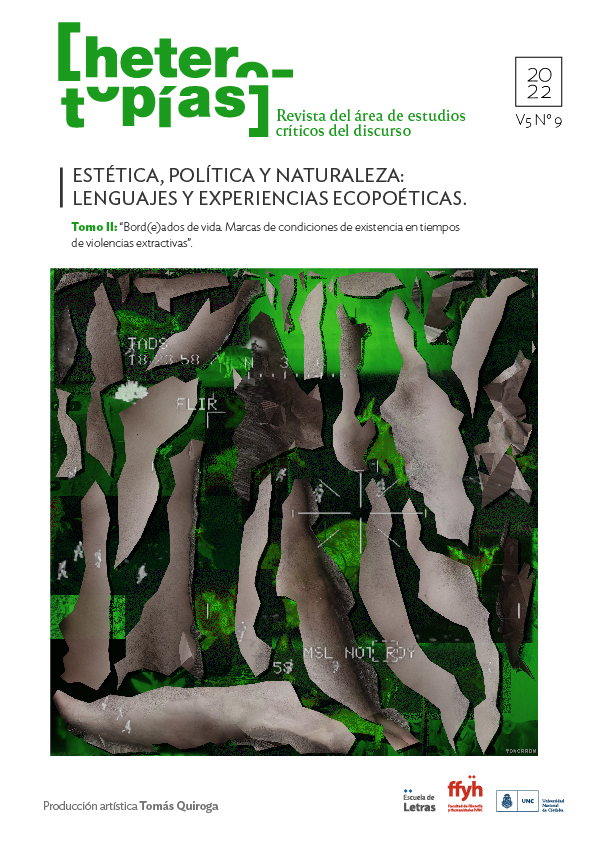Caring for the dead, being cared for by them
Main Article Content
Abstract
This work proposes a reading of A la salud de los muertos. Relatos de quienes quedan, by Vinciane Despret, which seeks to place it, first of all, in the framework of the unprecedented experience of the massive number of deaths that the pandemic brought us and the consequent need to reimagine the forms of mourning. But, at the same time, it shows the centrality of her intervention in the framework of the ongoing theoretical debates about the devastating effects of human exceptionalism and the need to rethink the humanities beyond their circle. Thus, the book is located at a double juncture, both vital and theoretical, pointing out how the necessary transformation of our relationship with the dead, which has become urgent with the Covid experience, is linked to the need for a general mutation of thought and of the human sciences on a scale as massive as the experience of the pandemic.
Downloads
Article Details

This work is licensed under a Creative Commons Attribution-NonCommercial-ShareAlike 4.0 International License.
Those authors who have publications with this journal, accept the following terms: Those authors who have publications with this journal, accept the following terms:
a. The authors will keep their copyright and guarantee to the journal the right of first publication of their work, which will be simultaneously subject to the Creative Commons Attribution - Non-Commercial - Share Alike (by-nc-sa) Attribution License; no commercial use of the original work or any derivative works is allowed, the distribution of which must be done with a license equal to the one that regulates the original work.
b. Authors may adopt other non-exclusive license agreements for the distribution of the published version of the work (e.g., deposit it in an institutional telematic archive or publish it in a monographic volume) provided that the initial publication in this journal is indicated.
c. Authors are allowed and recommended to disseminate their work through the Internet (e.g. in institutional telematic archives or on their website) before and during the submission process, which may lead to interesting exchanges and increase the number of citations of the published work. (See The effect of open access).
